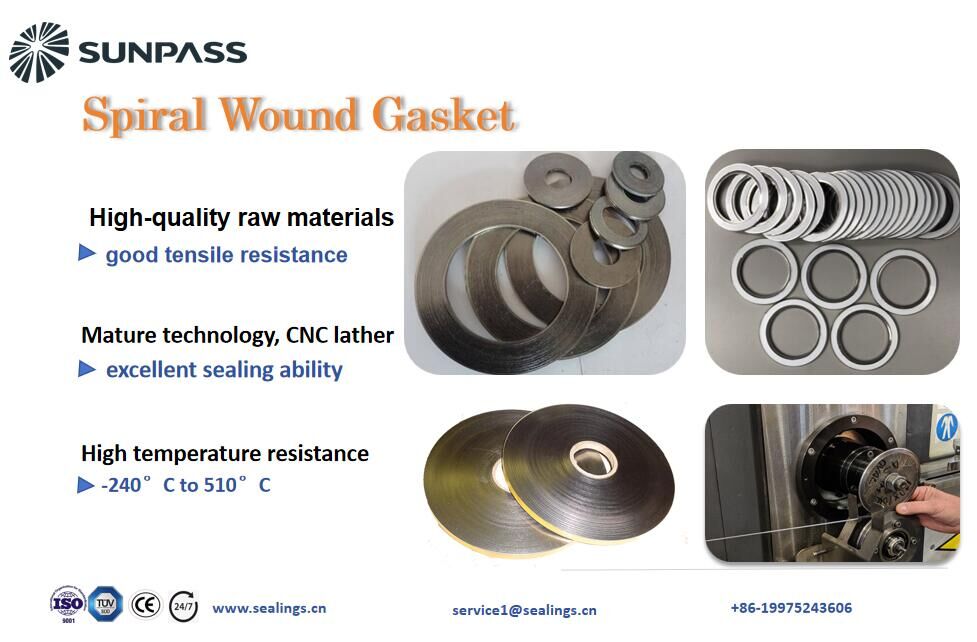Spiral wound gaskets, usually metal spiral wound gaskets, are a common sealing element used in pipe flange connections. It is made of metal and non-metallic belts wound alternately, and has the following advantages:
Good sealing performance: The spiral wound gasket can deform according to the shape and roughness of the flange surface, thereby achieving a good sealing effect.
High temperature and high pressure resistance: The metal spiral wound gasket can withstand high temperatures and pressures and is suitable for high temperature and high pressure environments.
Strong corrosion resistance: The inner and outer rings are usually made of stainless steel or other corrosion-resistant metals, and the filling belt can be corrosion-resistant materials such as asbestos and PTFE, which are suitable for sealing a variety of corrosive media.
Good compression rebound performance: The spiral wound gasket can be well compressed when under pressure, and can restore its original shape after pressure relief, ensuring the sealing effect in long-term use.
Easy to install: The spiral wound gasket has a simple structure and is easy to install, and can be quickly installed between flanges.
Strong adaptability: Since the spiral wound gasket can choose different metal and non-metallic belt materials as needed, it can adapt to various working conditions.
Simple maintenance: During use, if there is a leak, the sealing performance can be enhanced by simply tightening the bolts without replacing the gasket.
Cost saving: Compared with other types of gaskets, spiral wound gaskets have good performance and relatively low cost, which is conducive to saving project costs.
Due to these advantages, metal spiral wound gaskets are widely used in pipeline and container flange sealing in the petroleum, chemical, pharmaceutical, food and other industries.
